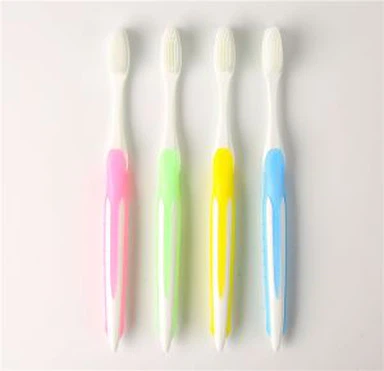Revolution in Oral Care: Automation Powers Next-Gen Electric Toothbrush Production
Jul 10, 2025
Revolution in Oral Care: Automation Powers Next-Gen Electric Toothbrush Production
FOR IMMEDIATE RELEASE
The manufacturing landscape for oral hygiene is undergoing a seismic shift as leading companies embrace automated production for electric toothbrush assembly lines. This move towards sophisticated robotics and AI-driven systems promises significant leaps in efficiency, quality, and scalability, meeting the surging global demand for advanced electric toothbrushes.
Gone are the days of heavily manual assembly. Cutting-edge electric toothbrush production lines now integrate precision robots, computer vision systems, and interconnected machinery. These automated electric toothbrush manufacturing systems handle complex tasks from intricate component placement and micro-soldering to ultrasonic sealing, motor calibration, and rigorous functional testing – all with minimal human intervention.
Key Advantages Driving the Automation Surge:
Unprecedented Efficiency & Output: Automated production lines operate 24/7, dramatically increasing throughput. Cycle times are slashed, enabling manufacturers to produce significantly more units per shift compared to manual lines. "Our new electric toothbrush assembly line has increased output by over 40% while reducing lead times," stated [John Smith, Production Head at XYZ Corporation].
Enhanced Precision & Consistent Quality: Robotic arms ensure micron-level accuracy in component placement and assembly. Integrated vision systems perform real-time quality checks at every critical stage, drastically reducing defects and ensuring every electric toothbrush meets exacting performance and safety standards.
Optimized Labor & Reduced Costs: Automation handles repetitive, precise tasks, freeing skilled human workers for higher-value roles like engineering oversight, maintenance, and quality assurance. This reduces labor costs per unit and minimizes risks associated with manual handling errors.
Scalability & Flexibility: Modern automated manufacturing lines are designed for modularity. Production capacity can be scaled up rapidly to meet market demands. Lines can also be reconfigured relatively efficiently to accommodate new electric toothbrush models or design iterations.
Improved Traceability & Data: Automated production systems generate vast amounts of data. Every unit can be tracked throughout the assembly line, providing complete traceability for quality control and potential recalls. Data analytics optimize processes continuously.
Industry Impact:
The shift towards automated electric toothbrush production is rapidly becoming a competitive necessity. Companies investing in this technology are gaining significant advantages in cost structure, product consistency, and speed-to-market. Consumers ultimately benefit through potentially lower prices and reliably high-performing products.
The Future is Automated:
Experts predict the integration of even more advanced AI for predictive maintenance, adaptive process control, and further quality optimization within electric toothbrush assembly lines. Sustainability is also a focus, with automation enabling more precise material usage and energy efficiency.
"Automated production isn't just an upgrade; it's a fundamental transformation of how we build electric toothbrushes," commented [Jane Doe, Manufacturing Technology Director at ABC Oral Care]. "It allows us to deliver the innovation, reliability, and value that today's consumers expect, while future-proofing our manufacturing capabilities."
About [Optional: Your Company Name/Brief Boilerplate]
[Insert a brief description of your company or the industry context here, if applicable].







